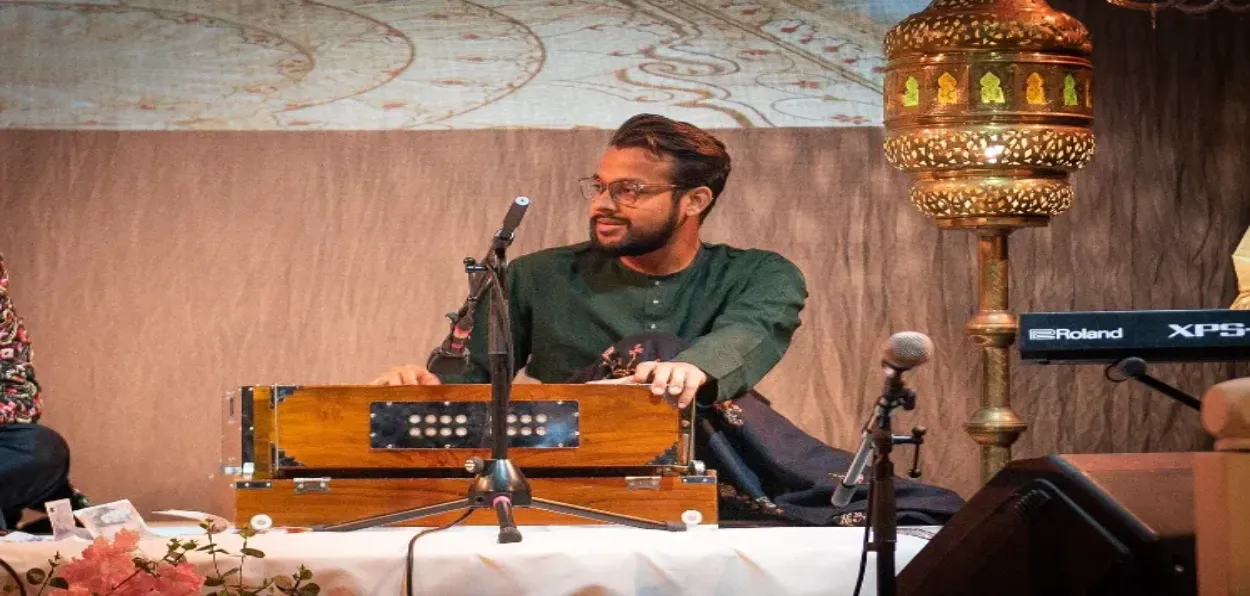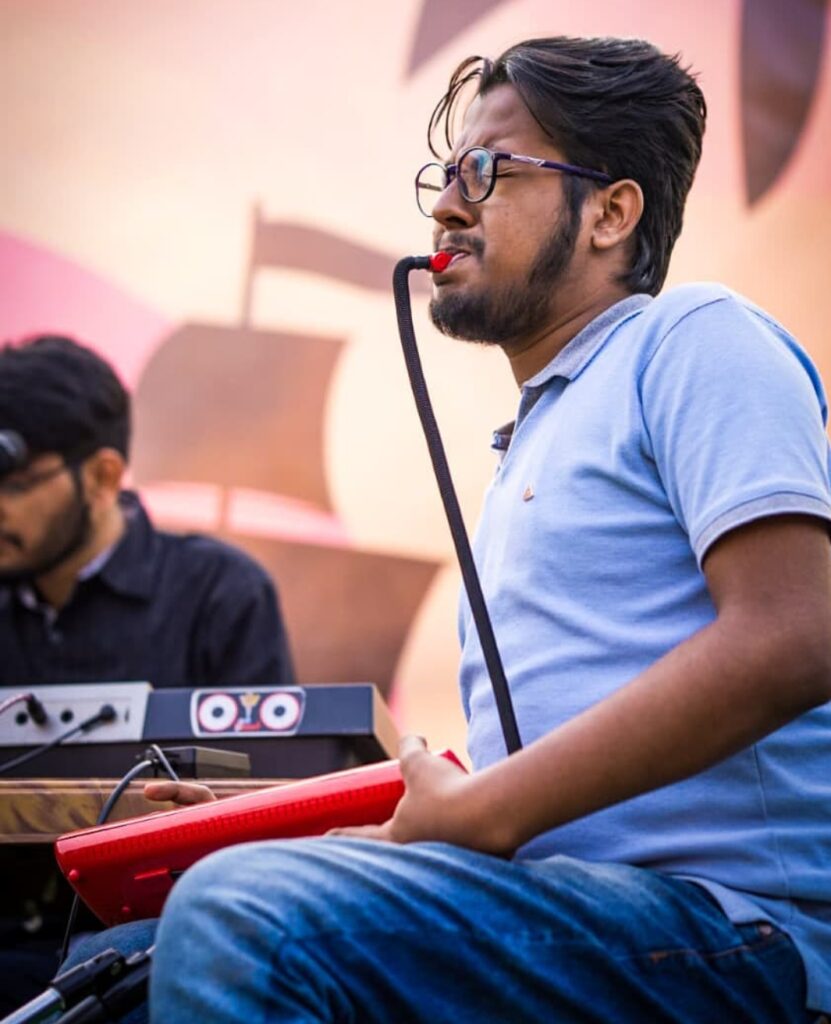
Vidushi Gaur/New Delhi
Sadakat Aman Khan, popularly known as Mr. Harmonium, is an Indian harmonium player from the Patiala Gharana, now based in the UK. Son of Ustad Sahadat Rana Khan, he trained under Ustad Md. Yunus Khan, disciple of Ustad Munawar Ali Khan. He has played across India and abroad, including Nanhua University, Taiwan (2020), promoting Hindustani classical and fusion music to global audiences. Awaz-the Voice spoke with him on his journey of promoting Hindustani classical music. Excerpts from the interview:
You come from a musical lineage as the son of Ustad Sahadat Rana Khan. How did your early years in Malda and your father's influence shape your musical journey?
My story begins in a home where music wasn’t a subject, it was the language everyone spoke. In Malda, dawn didn’t begin with the sun; it began with my father waking me up at 4 AM for riyaaz. As a child, I thought it was torture. Today, I know it was love disguised as discipline. My father believed that “if you respect the note, the note will respect you back.” That single sentence shaped the musician and the human I eventually became.
.jpeg) Mr. Harmonium, Sadakat Aman Khan
Mr. Harmonium, Sadakat Aman Khan
You trained under Ustad Md. Yunus Khan of the Patiala Gharana. What were the most valuable lessons you learned?
From him, I learned that notes are not meant to be played, they’re meant to speak. He would say, “Don’t make music; make emotions.” He taught me patience, humility, and the truth that classical music is spiritual work, not commercial work. Hours spent on one phrase were never a burden; they were a meditation. He reminded me often: be a good musician, yes, but be a better human first.
Representing the Patiala Gharana, how do you balance purity of classical music with contemporary and fusion sounds?
I always imagine classical music as the trunk of a great tree. Fusion, jazz, EDM, those are branches and flowers. They may sway differently, but the roots remain untouched. So, when I experiment, I ensure the raag, the emotion, the core stays pure. Fusion works only when it’s done with respect, never as a gimmick. Every artist in the collaboration must have space to breathe.
You made your international debut at Nanhua University, Taiwan, in 2020. How did that global stage shape you?
Taiwan changed me. I played for an audience unfamiliar with Indian culture or raags, yet by the end, half of them had tears in their eyes. One student told me, “I don’t know what you played, but you made me feel something.” That day I realised, music doesn’t require translation. It only requires honesty.
 Mr. Harmonium, Sadakat Aman Khan
Mr. Harmonium, Sadakat Aman Khan
Now based in the UK, how do you introduce Hindustani classical music to audiences new to it?
When I arrived, many people didn’t even know what a harmonium looked like. So I began small. I started a project called Harmonium Across Borders, where I place Indian raags alongside Western melodies, not to mix them blindly, but to let them greet each other. My aim is not to show off what I know; it is to share what I love.
Fusion can be delicate, too much innovation, and tradition gets diluted. How do you create music that resonates today without losing essence?
By remembering that the foundation must never shift. I enjoy metal, EDM, techno, everything. But no matter what I pair harmonium with, the raag stays intact. Classical music is the dictionary. Fusion is just the poetry we create from it. Young listeners connect when the music has freedom, but that freedom must have dignity.
.jpeg) Mr. Harmonium, Sadakat Aman Khan
Mr. Harmonium, Sadakat Aman Khan
What challenges have you faced while promoting Indian classical music abroad?
The biggest challenge is awareness. Many people think Indian music is only Bollywood or meditation tracks. So before I play, I speak. I tell them the story of the raag, its mood, its creator, its time cycle. Once they understand the story, they connect instantly. Storytelling becomes the bridge between tradition and unfamiliar ears.
Watch Video: Sadakat Aman Khan: Taking Indian Classical Music to Europe
And finally, what message would you share with young musicians, especially those living away from India?
A. Be patient. Classical music is slow magic. You can’t rush it; you can’t fake it. Find a guru, respect your time, and keep a backup plan for life, but never treat classical music casually. It’s a relationship. If you stay honest, it will reward you with peace, not fame and peace is far more valuable. Even abroad, don’t feel disconnected. Raag travels with you if you let it live in your heart.
